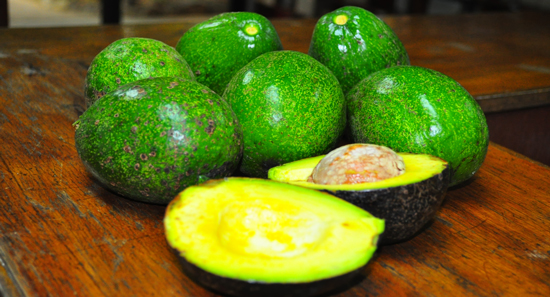
Consider replacing saturated fats found in animal products like meat and dairy with monosaturated sources of fat found in vegetarian sources, like nuts, avocados and olives. Photo courtesy of whologwhy
We know for certain that specific lifestyle choices, like whether you smoke and how much alcohol you drink, can increase your chance of breast cancer. Obesity is another known risk factor, but researchers are still uncertain about exactly how the amount of fat in our diet influences our odds of getting breast cancer. Despite this uncertainty, the Maurer Foundation takes a clear-cut position: fat matters.
The Dietary Fat & Breast Cancer Studies
It’s true that studies examining the link between the amount of fat women eat and their likelihood to contract breast cancer have conflicting results. Several researchers (including those behind a particularly large 2007 study involving nearly 200,000 women) have found direct links between fat consumption and incidenceIncidence refers to the occurrence of new cases of disease or injury in a population over a specified period of time. of breast cancer. Other studies, though, have found little to no direct relationship.
What’s with the mixed results? One recent study suggests that those differences may depend on the way researchers ask women about their eating habits—filling out a questionnaire on their typical diet proved to be less accurate than keeping a food diary. This is no surprise to anyone who has winced while watching their calories pile up on a diary-style weight loss app on their smartphone.
Saturated vs. Monounsaturated Fats
Another factor to consider is that not all fats are created equal. Some studies have specifically examined consumption of saturated fat (the cholesterol-raising kind of fat usually found in animal products like meat and dairy) versus the “good for you” monounsaturated fats (found in olive oil and nuts), with clearer results. Saturated fat seems to be linked more closely to breast cancer than fat overall, although we don’t know exactly why just yet.
One particularly worrisome fat that women should be wary of is the kind found in full-fat dairy products like cheese, ice cream, and whole milk. In March 2013, one very specific study found that eating high-fat dairy was associated with a higher risk of death after breast cancer diagnosis. The researchers believed that this was due to the hormones found in milk fat, and the role that estrogen appears to play in the development and reoccurrence of breast cancer. Low-fat dairy like skim milk or fat-free yogurt, with most of that hormone-laced fat removed, had no effect.
While more research is needed across the board when it comes to fat and breast cancer, the evidence appears to be growing that dietary fat is a risk factor. It’s clear that women who have previously had breast cancer should avoid full-fat dairy, and all women should avoid excess saturated fat—beyond its proposed link to breast cancer, we already know saturated fat can lead to high cholesterol and heart disease. And while the jury is still out on how high-fat diets overall relate to breast cancer, we know that obesity is a definite risk factor… and for most women, avoiding a fat-laden diet is one important part of maintaining a healthy weight.
What Should You Do?
Let’s be clear: not all fat is bad for you, and we need a certain amount of fat to live and better absorb other nutrients. We aren’t proposing a return to the low-fat diet fads of decades past, but rather encouraging you to consume your dietary fat from sources like avocados and olive oil rather than bacon and full-fat ice cream. Even if you’re lucky enough not to worry about your waistline, it’s becoming more and more clear that these kinds of food are bad for your breast health.
For some ideas on ways to swap in healthy fats, see our collection of cancer-fighting recipes and our nutrition switch list!